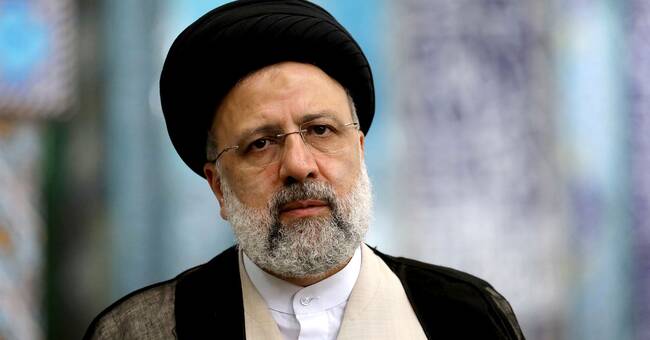At the end of the summer, what is assumed to be one of the largest international trials to date in Sweden will begin.
The case against the now 60-year-old man who was arrested at Arlanda 2019 has been prepared for several years.
Dozens of plaintiffs fly in from all over the world and the trial is expected to last for several months.
The man is in custody on suspicion of a serious violation of international law and murder for the fateful days July 28 to August 31, 1988, when countless men, women and - according to information from the human rights organization Amnesty International - even children were transported with forklifts to be hung in cranes and lampposts or arquebused.
So what does the 60-year-old, who has been locked up in Stockholm for almost two years, have to do with the newly elected president of Iran, Ebrahim Raisi?
- Raisi was his boss, says Iraj Mesdaghi, plaintiff in the case against the 60-year-old.
Ordered mass executions
Iraj Mesdaghi sat in the Gohardasht prison outside Tehran during the period when thousands (the exact figure has never been known) political prisoners were taken to their execution in just a few weeks.
He has lived in Sweden for almost 30 years and gathered information about the time when he saw his friends and acquaintances taken away one by one.
This has resulted in a book - as well as a key position in the case against the 60-year-old, who has always denied any wrongdoing.
- Raisi sat on the council that decided who was allowed to live and who was to die.
Honestly, I am glad that he has now become president, because it shows the outside world what kind of regime we are talking about in Iran.
Criminals, says Iraj Mesdaghi.
Allows recording
Five years ago, in August 2016, an audio file was released from a 1988 meeting that clearly mentions Ebrahim Raisi as one of the four main perpetrators of the executions.
According to Rouzbeh Parsi, head of the Foreign Policy Institute's Middle East and North Africa program, the participation in the executions is not something that the new president "sticks under a chair with", even though he has never admitted violating international law.
- In the audio file, he admits interference.
But we must understand that even if the outside world sees this as something terrible, it is justified in Iran as if justice was done, says Parsi.
The impending trial of Raisi's subject at the time may put the finishing touches on the relationship between Iran and Sweden.
But the ultra-conservative Raisi's involvement is probably nothing that has been a burden to him among the hardliners who control large parts of the state apparatus, says Parsi.
- It just shows he is loyal to the system.

